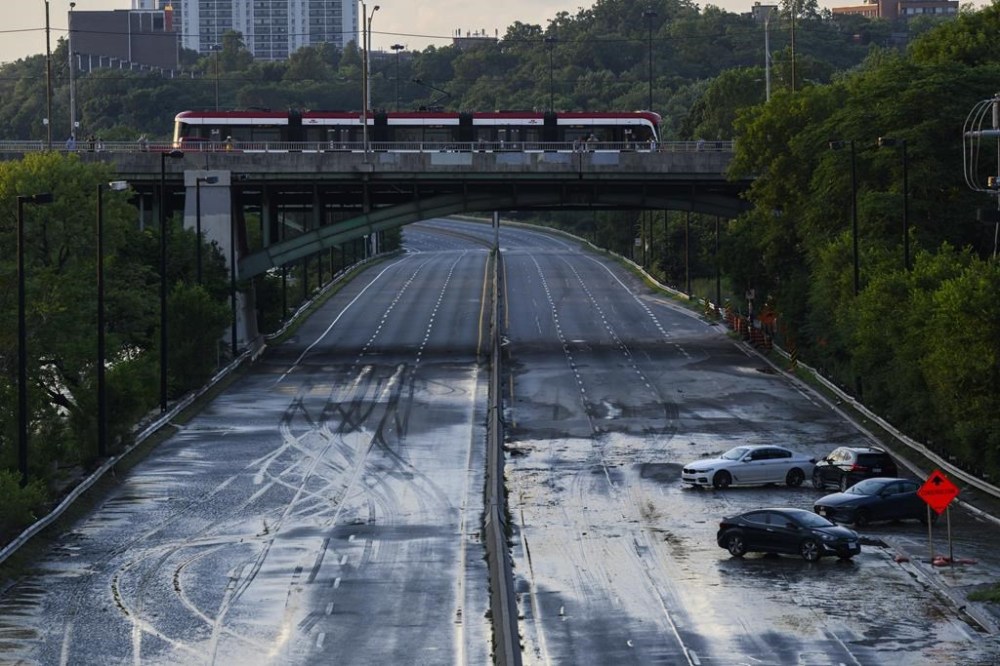Severe summer weather cost $7 billion in most destructive season on record
Advertisement
Read this article for free:
or
Already have an account? Log in here »
To continue reading, please subscribe:
Monthly Digital Subscription
$0 for the first 4 weeks*
- Enjoy unlimited reading on winnipegfreepress.com
- Read the E-Edition, our digital replica newspaper
- Access News Break, our award-winning app
- Play interactive puzzles
*No charge for 4 weeks then price increases to the regular rate of $19.00 plus GST every four weeks. Offer available to new and qualified returning subscribers only. Cancel any time.
Monthly Digital Subscription
$4.75/week*
- Enjoy unlimited reading on winnipegfreepress.com
- Read the E-Edition, our digital replica newspaper
- Access News Break, our award-winning app
- Play interactive puzzles
*Billed as $19 plus GST every four weeks. Cancel any time.
To continue reading, please subscribe:
Add Free Press access to your Brandon Sun subscription for only an additional
$1 for the first 4 weeks*
*Your next subscription payment will increase by $1.00 and you will be charged $16.99 plus GST for four weeks. After four weeks, your payment will increase to $23.99 plus GST every four weeks.
Read unlimited articles for free today:
or
Already have an account? Log in here »
Hey there, time traveller!
This article was published 24/09/2024 (447 days ago), so information in it may no longer be current.
TORONTO – Summer of 2024 is now Canada’s most destructive season on record for insured losses due to severe weather events, the latest estimates from the Insurance Bureau of Canada show.
Damages for a group of storms and wildfires across the country combined to more than $7 billion in insured losses, topping the $6.2 billion cost of the Fort McMurray, Alta., wildfire in 2016.
That’s 10 times higher than the average $701 million per year for severe weather losses between 2001 and 2010, the report said.

“This has been a devastating summer for hundreds of thousands of Canadians,” said IBC president and CEO Celyeste Power, in a release.
Wildfire in Jasper, Alta., flooding in southern Ontario and Quebec, and an Alberta hailstorm resulted in about 228,000 insurance claims, which is up 406 per cent compared with a two-decade average, she added.
“These events are escalating at a shocking rate and Canada is simply not prepared,” she said.
Flooding in regions of Quebec amounted to $2.5 billion in insured damage while flooding in Toronto and other parts of southern Ontario cost $940 million. In Alberta, Calgary’s hailstorm caused $2.8 billion in losses and Jasper wildfires saw insured losses of $880 million. All four severe weather events occurred in the months of July and August.
The agency said it has been asking provincial and federal governments to respond to climate change as a crisis and collaborate in reducing disaster risk.
It added the federal-provincial debates on how best to reduce emissions have overshadowed efforts to co-ordinate and invest in climate adaptation.
“Insurers are now paying out more in claims for a single event than the $1.9 billion that the federal government has allocated to climate adaptation over the past decade,” said Craig Stewart, vice-president of climate change and federal issues at IBC.
He emphasized the need to support resilient building so insurance is available and affordable for homeowners. That means upgrades to stormwater infrastructure, and programming to help fire- and flood-proof new and existing homes.
The bureau says severe weather in 2023 caused more than $3.6 billion in insured damage across Canada.
This report by The Canadian Press was first published Sept. 24, 2024.
Note to readers: This is a corrected story. A previous version incorrectly stated the cost of the 2016 Fort McMurray, Alta. wildfire. It also misstated the amount of insured damages for 2023.


